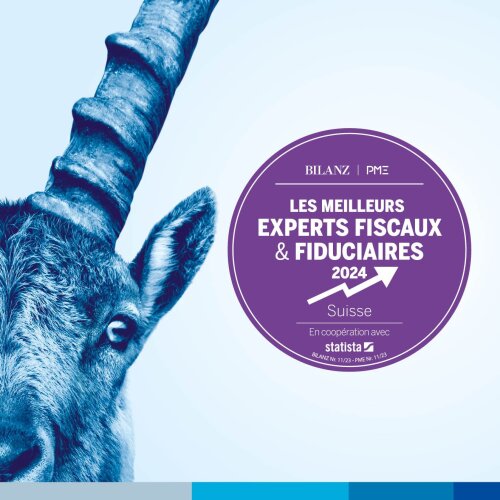Best Inheritance Law Lawyers in Sion
Share your needs with us, get contacted by law firms.
Free. Takes 2 min.
List of the best lawyers in Sion, Switzerland
About Inheritance Law in Sion, Switzerland
Inheritance law in Sion follows the Swiss Civil Code, with cantonal practices that reflect local needs in Valais. The core framework covers how estates are distributed when there is a will, and how they are handled when there is no will. Wills, intestate succession, and the duties of executors are central topics for residents and property owners in Sion.
In practice, many people work with a solicitor or notary to plan their estate, draft a will, or administer a decedent’s estate after death. The notary often plays a key role in authenticating wills and guiding the probate process, especially in complex cases involving real property in Valais. Understanding both the national Civil Code and cantonal practices helps prevent disputes later on.
Why You May Need a Lawyer
- A local spouse and children are contending with a will that disinherits a primary beneficiary, creating potential challenges to the testamentary provisions.
- You are named as executor and must navigate estate inventories, debt settlement, and distribution of assets within Valais courts and the cantonal tax framework.
- You inherited or stand to inherit real estate in Sion and need to confirm ownership, assess debts, and resolve encumbrances or joint ownership issues.
- You suspect the will was created under duress, lacks capacity, or there are allegations of undue influence that could invalidate parts of the disposition.
- You have cross-border assets, such as property in France or other cantons, and require coordination between Swiss and foreign probate laws and tax rules.
- You are a non-resident beneficiary with assets in Valais and need guidance on Swiss inheritance procedures, tax implications, and potential cantonal exemptions.
Local Laws Overview
The Swiss Civil Code, Part Five Erbrecht, governs most fundamental inheritance matters in Sion. It addresses testamentary dispositions, intestate succession, and the rights of legal heirs and forced heirs, known locally as Pflichtteil rights. This national framework is applied and interpreted with cantonal adjustments in Valais.
Valais has cantonal provisions that influence the administration of estates and the taxation of inheritances and donations. These provisions determine how estates are taxed, which heirs are exempt or taxed at different rates, and the practical steps for reporting inheritances to cantonal authorities. The interplay between federal civil law and cantonal tax rules is a common feature for residents in Sion.
Key practice areas in Sion include the role of notaries in drafting and authenticating wills, maintaining estate registers, and assisting with estate inventories. Notaries help ensure that testamentary acts comply with both national and cantonal requirements and can help resolve ambiguities that arise during probate.
Frequently Asked Questions
What is the Swiss Civil Code and how does it affect inheritance?
The Swiss Civil Code provides the general rules for inheritance, including how estates are distributed if there is no will, and the rights of spouses and children. It is the baseline framework used in Sion.
How do I start probate if a relative dies in Sion?
Begin by notifying the local authorities and a qualified attorney or notary. They will prepare an inventory, identify heirs, and guide you through court procedures if necessary.
What is a Pflichtteil and who qualifies?
The term refers to the portion of the estate that certain close relatives cannot be disinherited from. The exact share varies by relationship under Swiss law.
How long does probate typically take in Valais?
Do I need a local lawyer or can I hire an interstate attorney?
Local familiarity with cantonal procedures in Valais is highly beneficial. A lawyer or solicitor based in Sion can coordinate with notaries and authorities efficiently.
What is the cost of hiring a lawyer for inheritance matters?
Fees vary by case complexity and the attorney or solicitor's rates. Typical costs include initial consultations, drafting, probate assistance, and court or notary fees.
Do I need to involve a notary in Valais for a will?
Notarial involvement is common for formal wills and for ensuring authenticity. A notary can confirm the will’s validity and help with estate inventories.
Is there a difference between a will and an inheritance agreement?
Yes. A will directs asset distribution, while an inheritance agreement can set terms among heirs during the decedent’s lifetime or as part of a posthumous agreement.
How do I contest a will in Sion?
Contesting a will typically requires showing lack of capacity, coercion, fraud, or invalid execution. Legal counsel will assess evidence and guide you through the process.
What documents should I gather before meeting a lawyer?
Collect the will (if any), death certificate, property deeds, bank statements, debt documents, and any prior tax records. Early organization speeds up the process.
What happens if there are assets in another canton or country?
Cross-border assets require coordination between Swiss probate procedures and foreign laws. A lawyer with cross-border experience can help align both processes.
Additional Resources
- Swiss Civil Code - Part Five Erbrecht on the Swiss government’s official portal for law texts. This source provides the authoritative framework for inheritance and testamentary matters. Swiss Civil Code, Erbrecht
- Valais Cantonal Tax Administration for information on cantonal inheritance and donation taxes and exemptions. Valais Tax Administration - Inheritance and Donations
- Chambre Valaisanne des Notaires for professional guidance on wills, estate inventories, and notarial acts in Valais. Notaries in Valais
- Office of the Justice and Police (EJPD) - Inheritance Law overview and citizen guidance on civil matters. Swiss Federal Department of Justice and Police
- Swiss Federal Tax Administration (ESTV) information on tax treatment of inheritances and gifts in Switzerland. ESTV - Inheritance Tax and Gift Tax
Recent Changes and Trends
In recent years there has been a stronger emphasis on notarial services for estate planning in Valais. This includes more standardized practices for authenticating wills and registering inventories to reduce disputes. Cross-border inheritance cases involving residents of Sion with assets outside Switzerland are becoming more common, prompting greater cooperation between cantonal authorities and international advisers. Notaries are increasingly central to ensuring compliance with both federal civil law and cantonal tax rules.
As digital assets become more common, residents are increasingly asked to consider digital wills and access to online accounts as part of estate planning. While digital assets are still evolving in Swiss law, reputable legal counsel in Sion can help prepare comprehensive plans that address these assets in addition to traditional property and financial holdings.
Next Steps: Find and Hire a Inheritance Law Lawyer
- Define your goals clearly. Decide whether you need a will drafted, a probate guide, or a dispute resolution strategy.
- Search for local specialists in Sion who handle Erbrecht and notarial matters. Prioritize practitioners with experience in Valais estates.
- Schedule initial consultations to discuss your situation, fees, and timeline estimates. Ask about cross-border expertise if relevant.
- Provide your documents to the lawyer in advance. Prepare your questions and a list of assets and potential heirs.
- Agree on a plan and fee structure in writing. Confirm who will sign wills or documents on your behalf if needed.
- Begin the probate or dispute process as advised by your counsel. Track deadlines and keep all parties informed.
- Review and update your estate plan periodically. Life events like marriage, birth, or relocation may require adjustments.
Source: Swiss Civil Code (Part Five Erbrecht) and cantonal guidance from Valais authorities
Lawzana helps you find the best lawyers and law firms in Sion through a curated and pre-screened list of qualified legal professionals. Our platform offers rankings and detailed profiles of attorneys and law firms, allowing you to compare based on practice areas, including Inheritance Law, experience, and client feedback.
Each profile includes a description of the firm's areas of practice, client reviews, team members and partners, year of establishment, spoken languages, office locations, contact information, social media presence, and any published articles or resources. Most firms on our platform speak English and are experienced in both local and international legal matters.
Get a quote from top-rated law firms in Sion, Switzerland — quickly, securely, and without unnecessary hassle.
Disclaimer:
The information provided on this page is for general informational purposes only and does not constitute legal advice. While we strive to ensure the accuracy and relevance of the content, legal information may change over time, and interpretations of the law can vary. You should always consult with a qualified legal professional for advice specific to your situation.
We disclaim all liability for actions taken or not taken based on the content of this page. If you believe any information is incorrect or outdated, please contact us, and we will review and update it where appropriate.










